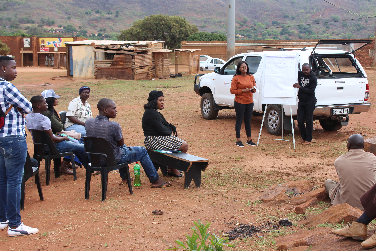Co-management as a form of good governance
Much work has been done with the Legalameetse Management Committee to support increased capacity to enter into co-management arrangements. Initial work to clarify roles and responsibilities used an expansive learning process. Strengthening the role of the LMC has continued into 2019 and a broader awareness-raising has also taken place with communities. More recently a governance workshop was run with the LMC to explore notions of power and authority, rights and responsibilities and benefits. This serves as an integral part of the work linked to the development of, and beneficiation from, Legalameetse.

Raising awareness of co-management in claimant communities
Co-management awareness workshops were held between the months of September and October 2018, with claimant communities from Balloon, Cyprus and Madeira villages. The purpose for these engagements was to raise general co-management awareness with the wider claimant communities. They provide an opportunity to share information with the wider claimant communities especially those who are unable to attend AWARD engagements as well as to promote good governance. The engagements are beneficial to the communities because they keep them up to date with the co-management process undertaken in LNR.
Eco-literacy: Connecting the youth and elders of Legalameetse for capacity development
The aim of the ecological literacy programme is to develop a community of people (the youth) that is aware of and concerned about the LNR’s biodiversity and its associated co-management process, and that has the knowledge, skills, attitudes, motivations, and commitment to work individually and collectively toward the sustainable development of the reserve. Through this, participants learnt about the complex nature of the interdependence between living and non-living organisms as well as their relationship with people. The programme was designed to promote systemic socio-ecological learning methodologies and teaching practices. The programme also emphasised Indigenous knowledge systems, as they relate to the dialectical relationship between nature and culture. Importantly, the youth and elders embarked on a co-learning journey.


